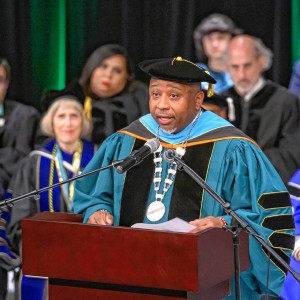Healey’s plan for ‘millionaires tax’ targets early child care and education
| Published: 03-12-2023 7:21 PM |
Even though child care is an essential need for families in the United States, a history of limited government support prevents many families every day from getting the adequate child care they need.
For years, the American child care system has suffered from an unsustainable funding model that operates mainly through tuition — a system that has only resulted in staffing shortages, low teacher salaries, and high prices. This has been exacerbated by the aftermath of the COVID-19 pandemic as child care providers across the nation search for qualified workers and relief stemming from the private marketplace.
Gov. Maura Healey addresses these concerns in her first budget proposal, which includes a near-even split of the $1 billion raised by the voter-approved “millionaires tax” for education and transportation. The bill earmarks $510 million for child care and education initiatives with $100 million targeted in the form of grants to child care providers.
Massachusetts Secretary of Education Patrick Tutwiler predicted the $475 million worth of Commonwealth Care for Children operational grants proposed in the budget will have significant impacts in the area of education and the early child care sector.
“Massachusetts has historically ranked in the bottom-half of state funding for early education and care. This proposal will take a big leap in the right direction and will also provide much needed stability in the early education space,” said Tutwiler in an interview. “I am thrilled, inspired, and hopeful that this [proposal] will be supported going forward.”
Early child care workers and educators in local communities are hopeful for what changes the new proposal might bring.
The Early Childhood Center at Hevreh in southern Berkshire County provides year-round child care to the surrounding community. However, with the high demand and limited space, the center has encountered its own set of challenges that have left some families on waiting lists and classrooms short on staff.
“We need to start viewing child care as a public good,” said Ellen Marcus, the center’s director. “It’s really not a sustainable or healthful model to fund all of our operations via tuition. Even with tuition that is in the higher range of what is charged within the community, compensation for teachers is limited.”
Article continues after...
Yesterday's Most Read Articles
 Holyoke man finds bear paw in his yard
Holyoke man finds bear paw in his yard
 Petition to block auto dealership on King Street falters in Northampton
Petition to block auto dealership on King Street falters in Northampton
 First look at how little Amherst’s police alternative being used called troubling
First look at how little Amherst’s police alternative being used called troubling
 Developer lands $400K loan for affordable housing project in Easthampton mill district
Developer lands $400K loan for affordable housing project in Easthampton mill district
 Developer pitches new commercial building on Route 9 in Hadley
Developer pitches new commercial building on Route 9 in Hadley
 Boyfriend accused in slaying of Hampden sheriff’s assistant, former legislator’s top aide
Boyfriend accused in slaying of Hampden sheriff’s assistant, former legislator’s top aide
Low wages for educators in the field have left many centers without adequate professional support. In turn, according to the Massachusetts Taxpayers Foundation, the lack of qualified workers in areas of child care has cost Massachusetts families nearly $1.7 billion a year in lost wages.
Marcus said until more financial backing is provided to child care workers, centers across the state will continue to be unable to provide more families with the services they need.
“We have to make sure that [workers] can make a living following their passion,” Marcus said. “I think it’s really important for people to understand that they are educators, not simply caregivers. They are professionals who work with the child and the family, but it’s hard to acknowledge that within the financial model we currently have.”
In order to change this financial model and urge more federal investment, families and school staff have been advocating for an increase in funding to initiatives like Head Start, a federal program that offers comprehensive early child care for low-income families. This comes at a time when emergency relief funds provided by the pandemic are approaching their fiscal cliff.
The effects of limited federal support have an impact not just on families and child care workers but also businesses where workers struggle to find adequate help. Employers are losing approximately $812 million a year in employee turnover and low productivity because working parents cannot access child care, according to the Massachusetts Taxpayers Foundation.
Jonathan Butler, the president and CEO of 1Berkshire, said that child care providers are a huge part of the efficient operations of businesses across the state. Without them, he said employers and employees are unable to operate at their best for the good of the surrounding community.
“When combined with the workforce crisis in Massachusetts, it’s a significant factor,” said Butler in an interview. “The idea that we have a lack of services available for day care options and alternative child care options, certainly in Berkshire, creates a strain for employers and the families of employees.”
Child care is often the largest expense for Massachusetts families — the commonwealth being the second most-expensive state in the nation to find adequate resources. Coupled with rising housing prices and high tuition rates, Butler has observed several families leaving their jobs and migrating to other regions in order to find more affordable child care options.
“It further accelerates the workforce challenge,” said Butler. “There are employers that are acting at about 60% to 80% productivity due to workforce challenges. Coming out of the pandemic, that’s the one thing that hasn’t bounced back — workforce statistics that match the demand.”
Amy Hall, the president and CEO of Child Care of the Berkshires, said the impact is not only significant for the children receiving developmental services but also for the caretakers who depend on these services to be able to provide for their families throughout the day.
“We know that child care is vital for parents to keep their jobs,” Hall said. “This is true, especially in single-parent households that depend on reliable child care that is open all the time. If not, they can’t get jobs or keep jobs.”
Yet, the reliability and consistency of child care centers depends directly on the available workforce — something that is lacking across the state and, particularly, in the Berkshires.
“We are working hard to have a stable child care environment so that families can work, but it’s a struggle,” Hall said. “The rates are just not what they need to be in order to pay people to stay and to even go into the field.”
The proposed state funding increase could combat the lack of appeal emerging childhood educators experience with the outlook of staying in a field that lacks proper compensation.
“We are open to private pay, child care vouchers, and provide some tuition assistance,” Marcus said. “But, it’s very limited. So, having that additional funding is central, so we can maintain operations in the most robust way for the benefit of the children.”
Some educators are even hoping for the increase in funding to spark more conversations around just how vital child care is for communities.
“I’m really excited that dialogue and conversations are happening coming out of the COVID-19 framework that highlighted the need for high-quality child care,” Marcus said. “It’s a conversation to be had with our representatives, and I’m hoping that it is something that results in an overall benefit to everybody in the field.”
Alanis Broussard writes for the Gazette from the Boston University Statehouse Program.
 New HCC president reflects on journey: Timmons sees his own struggles and arc in students’ paths
New HCC president reflects on journey: Timmons sees his own struggles and arc in students’ paths South Hadley man fatally shot in attempted robbery
South Hadley man fatally shot in attempted robbery Historic murals restored at Victory Theatre in Holyoke
Historic murals restored at Victory Theatre in Holyoke Boards balk at limiting use of Hadley Town Common
Boards balk at limiting use of Hadley Town Common
